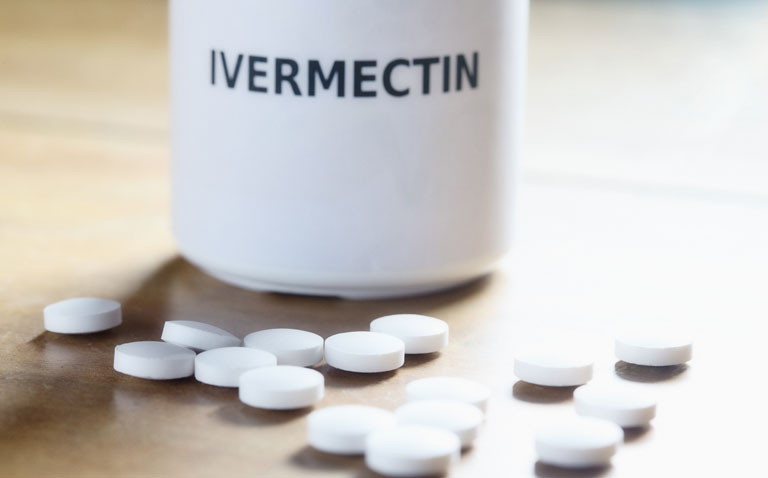An in vitro study showed that ivermectin inhibits COVID-19 replication and therefore represents a potentially novel treatment for the virus.
Ivermectin is an anti-parasitic drug but is also used as a topical treatment for rosacea. One prior in vitro study has shown how a single dose of ivermectin caused a 93% reduction in replication of COVID-19 after 24 hours. While there have been some observational and cases studies suggesting that ivermectin is able to reduce the duration of illness in COVID-19, there is a lack of robust evidence derived from randomised, controlled trials. As a result, a team from the University of Barcelona, Spain, undertook a pilot, double-blind, placebo-controlled trial to compare a single oral dose of ivermectin in patients with non-severe COVID-19 and no other risk factors. The study included patients who presented to an outpatient emergency room with symptoms compatible with COVID-19, i.e., fever or cough that had been present for no longer no than 72 hours and with a positive PCR test. Patients with antibodies to COVID-19 or risk factors for more severe disease including chronic obstructive airway disease, COVID-19 pneumonia, diabetes, hypertension, were excluded from the study. Enrolled patients were randomised to receive either oral ivermectin 400mcg/kg as a single dose or matching placebo. The authors defined the main objective as determining the efficacy of a single dose of ivermectin to reduce onward transmission of COVID-19. The primary outcome measure was defined as the proportion of patients with detectable COVID-19 (via PCR) 7 days post-treatment. Secondary outcomes included viral load, symptom burden at days 4, 7, 14 and 21 post-treatment.
Findings
In total, 24 patients were randomised (12 per group) and the median age of those given ivermectin was 26 years (42% female) and both groups were well matched. Overall, 66% of patients presented with a perceived or objective fever, 25% with a cough and 70% with headache. The median onset of symptoms before treatment was 24 hours (but no longer than 48 hours). There were also no differences in vital signs, inflammatory markers or full blood counts between the two groups. After 7 days, there were no differences in the proportion of positive PCR tests (relative risk, RR = 0.92, 95% CI 0.77 – 1.09, p = 1.0) with all patients still testing positive. However, among those given ivermectin, there was a non-significant but lower, viral load at day 7. In addition, patients assigned to ivermectin reported fewer days of any symptoms compared to placebo (171 vs 255 patient days) and none of the patients progressed to more severe disease.
The authors concluded their pilot study suggests that ivermectin is potentially of value in the early treatment of COVID-19 and called for further investigation in a larger trial.
Citation
Chaccour C et al. The effect of early treatment with ivermectin on viral load, symptoms and humoral response in patients with non-severe COVID-19: a pilot double-blind, placebo-controlled, randomised clinical trial. EClinicalMedicine 2021










